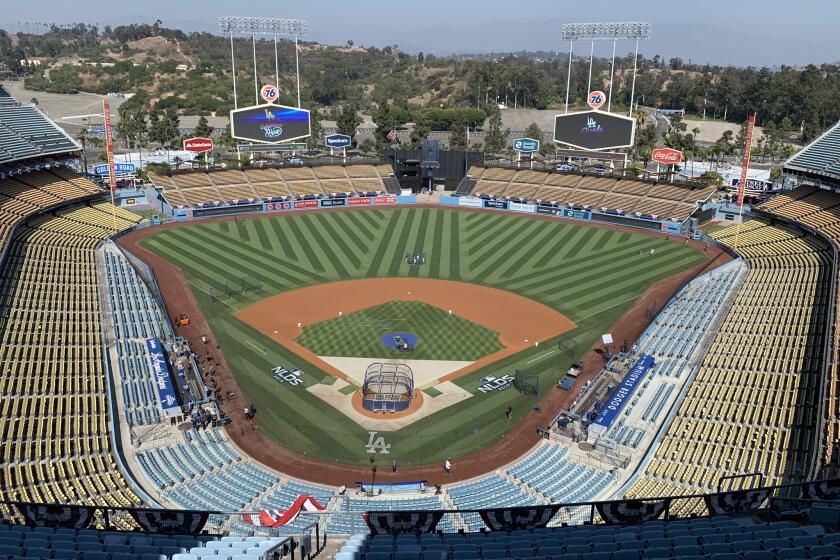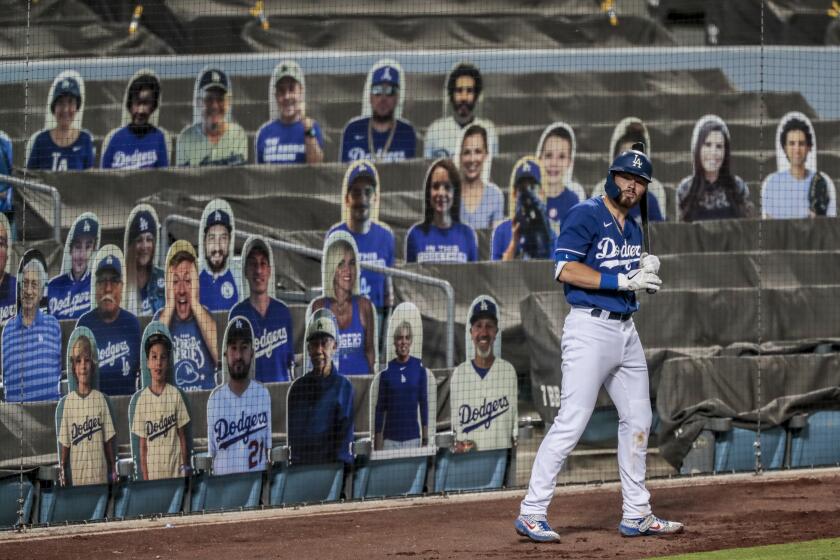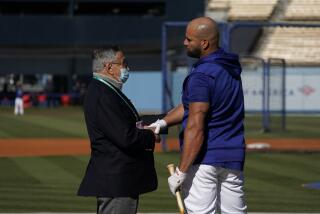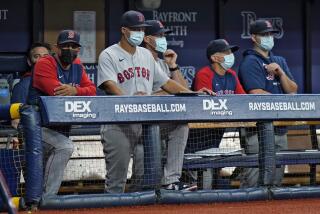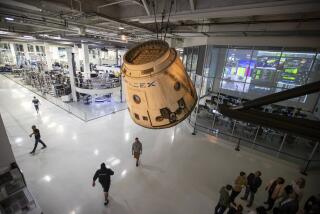Fewer than 1% of MLB employees test positive for COVID-19 antibodies
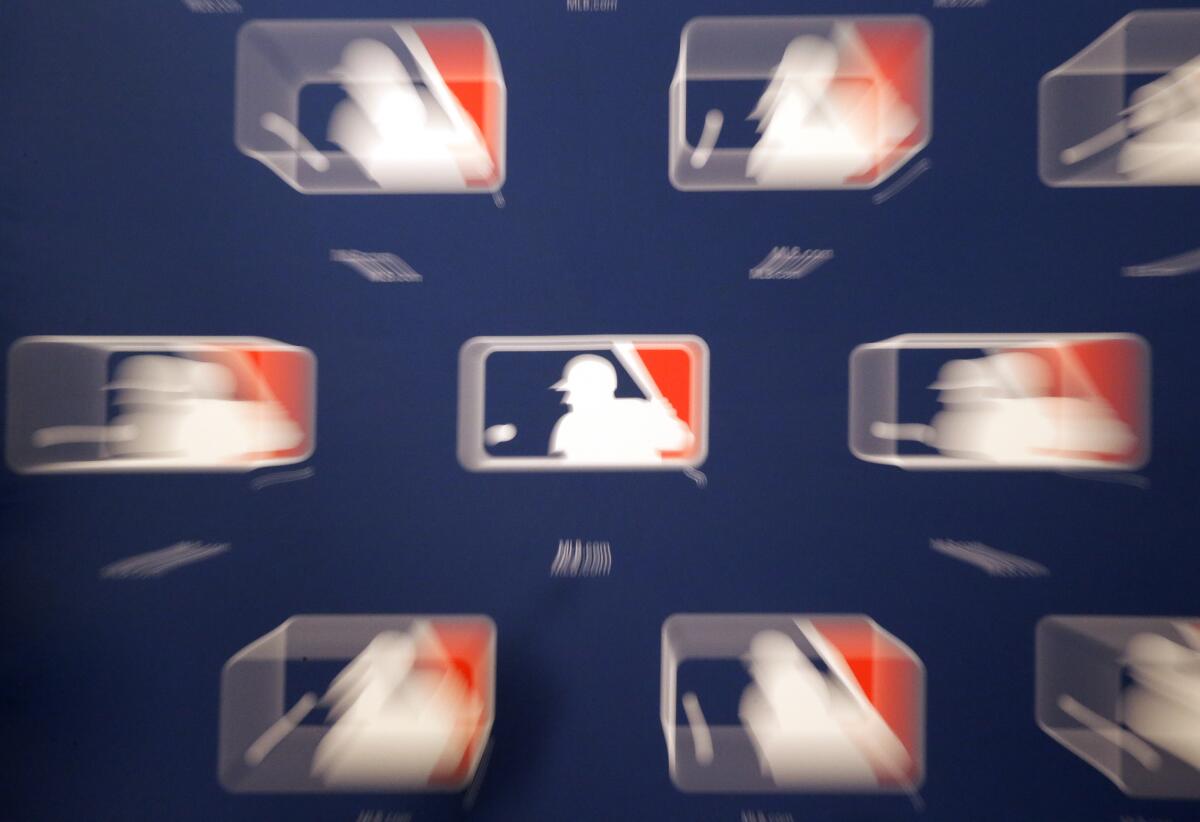
- Share via
The coronavirus outbreak largely has spared the baseball world, with data released Sunday to prove it.
Of the 5,603 major league employees who submitted to what researchers called the largest national antibody study to date, only 60 tested positive, researchers said Sunday.
The researchers announced an estimated positive rate of 0.72% after adjusting the results for what they said were false positives and false negatives.
Angels employees had the highest positive rate among the 26 teams that participated, but the relatively small number of tests administered to each team — 123 to the Angels — made it difficult to draw conclusions, said lead researcher Jay Bhattacharya, professor of medicine at Stanford. He did say the rate of positive tests among Angels employees was lower than the infection rate in the local community.
MLB is expected to submit a proposal to players Tuesday to start the season in early July. The Dodgers and Angels would play at home and largely on the West Coast.
Still, the minute percentage of positive tests provided a data point as scientists determine how wide the coronavirus has spread within the United States. Bhattacharya said he expected a larger positive rate.
“The epidemic has not gotten very far,” he said. “We have quite a way to go.”
However, in other antibody studies limited to specific locales, the positive rates have ranged from 2.8% in Santa Clara County to 24.7% in New York City. The researchers in the Major League Baseball study noted their participants were not representative of the population as a whole: 95% under the age of 65, 80% white, 60% male and 100% employed.
“What we’re seeing is a hint of a socioeconomic gradient,” Bhattacharya said.
Antibody tests check for evidence of the protein the body produces in response to the virus, not for the presence of the virus itself. Scientists have not determined what level of immunity the antibodies might confer and for how long that immunity might last.
Stories examining the impact the spread of the coronavirus has had on the NBA, NHL, MLB, the NCAA tournament and the rest of the sports world.
But by providing some evidence of how widely the virus has spread, antibody studies offer data useful to authorities in determining how to reopen cities and states.
The false positives and false negatives of these and other antibody tests offer a cautionary tale for employers — and not just for MLB — in reopening workplaces. The researchers said one test, whether for antibodies or for the active virus, would yield enough false positives that multiple tests would be required to certify someone as safe to return to work.
The researchers did not identify how many players participated in the testing, which was voluntary. They emphasized MLB offered assistance from the perspective of public health, not for guidance in getting baseball back on the field.
Owners are expected to present players this week with a proposal for an abbreviated season, with an opening day anticipated in early July. Although the researchers could isolate study results based on geography, they said the participants from each team were too few to advise the league on which locations might be the safest in which to return.
“To say, look, you can go play in Arizona or wherever on the basis of this study would be difficult,” Bhattacharya said. “I would have designed the study very differently if I were trying to answer that question.”
More to Read
Go beyond the scoreboard
Get the latest on L.A.'s teams in the daily Sports Report newsletter.
You may occasionally receive promotional content from the Los Angeles Times.

